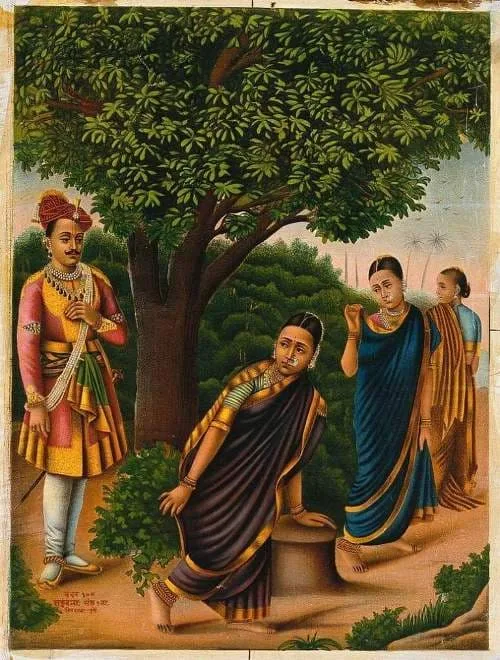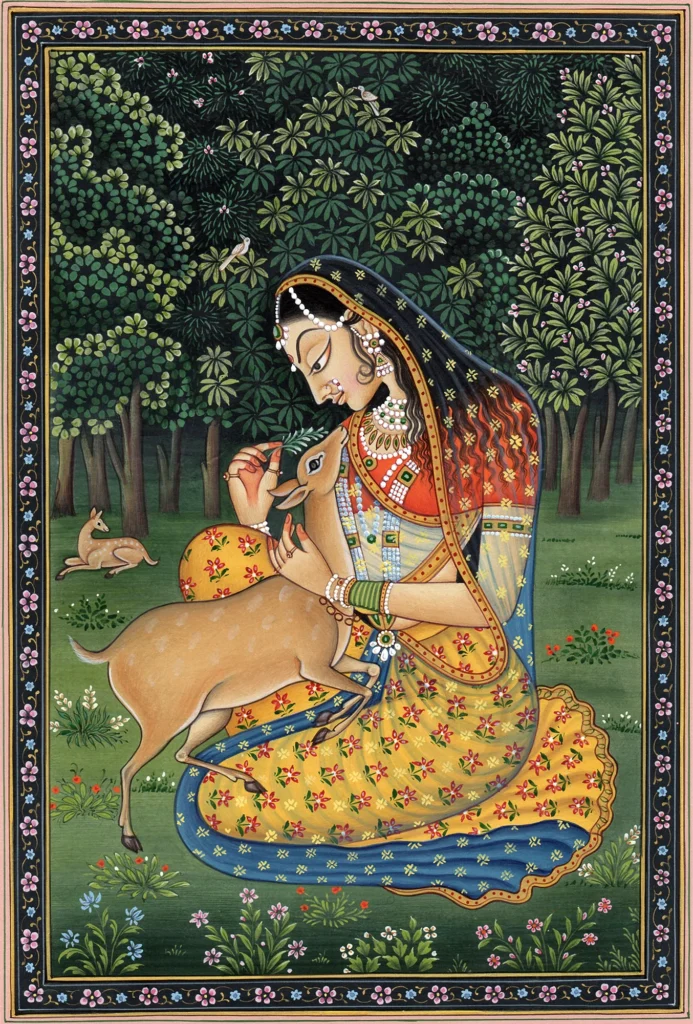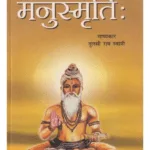Shakuntala is a mythical Hindu heroine who has long captivated people’s imaginations. She is the main character in Kalidas’s “Abhijnanasakuntalam,” a great Sanskrit playwright from ancient India’s repertoire. This play is a timeless classic that has been enjoyed and admired for thousands of years. It is regarded as a masterpiece of classical Sanskrit drama. In Hindu culture and tradition, Shakuntala is an iconic figure who exemplifies beauty, grace, and virtue. In this blog, we will look at Shakuntala as a character, her love story with King Dushyanta, the play that made her famous, and her lasting legacy. Come along with us as we explore the fascinating world of this famous Hindu heroine.
The Character of Shakuntala
Shakuntala is a well-known Hindu heroine known for her grace, beauty, and goodness. She is portrayed as a woman with a lot of compassion and kindness, and her actions show that she is selfless and dedicated.
Shakuntala was the daughter of the celestial nymph Menaka and the sage Vishwamitra. She was raised in a hermitage and had a unique upbringing steeped in the wisdom and spirituality of the sagely life because of her unique parents. Her name, “Shakuntala,” signifies “one who is recalled by her companions,” and mirrors her sort and loving nature.

Shakuntala is frequently referred to as being incredibly beautiful in terms of her physical appearance. She has long, flowing hair and a complexion that shines like the sun. Her alleged unparalleled beauty plays a significant role in the play’s plot.
Shakuntala is portrayed as a woman who is emotionally attached to King Dushyanta. She is passionate and devoted, and she has an unwavering love for the king. Her actions throughout the play are fueled by this devotion, which is a key component of her character.
In general, the character of Shakuntala is regarded as the epitome of beauty, grace, and virtue in Hindu culture and represents the ideal of womanhood.
The Story of Shakuntala
The main plot of Kalidas’s Sanskrit play “Abhijnanasakuntalam” revolves around Shakuntala’s story. The play is about Shakuntala’s love affair with King Dushyanta and takes place in ancient India.
King Dushyanta falls in love with Shakuntala, who was raised in a hermitage, when he goes to the sage’s ashram. King Dushyanta is required to leave Shakuntala behind when he is summoned to perform his responsibilities as king, despite the fact that the couple eventually wed. Shakuntala is cursed by a wise man while he is gone, and her husband forgets about her.

Shakuntala eventually has a son and returns to the kingdom to be with her husband. She can’t prove her identity or that she is King Dushyanta’s wife, though. She is finally recognized and reunited with her husband and son only when a signet ring the king gave her is found.
The play has been enjoyed and revered for thousands of years as a classic tale of love, loss, and reunion. It is important to the Hindu cultural tradition and is regarded as a masterpiece of classical Sanskrit drama. Shakuntala’s story is still beloved by audiences and is regarded as a timeless classic in Hindu mythology.
The Play “Abhijnanasakuntalam”
The ancient Indian poet and playwriter Kalidas wrote the Sanskrit play “Abhijnanasakuntalam.” The play, also known as “The Recognition of Shakuntala,” is regarded as a masterpiece of classical Sanskrit drama and one of the greatest pieces of Sanskrit literature.
The play is set in ancient India and was written during the Gupta Empire. It tells of Shakuntala’s love affair with King Dushyanta and her eventual reunion with her husband and son. The play is renowned for its exploration of duty, identity, and the significance of memory as well as its depiction of love, loss, and reunion.

“Abhijnanasakuntalam,” one of Kalidas’s greatest works, is regarded as one of the greatest Sanskrit poems and plays of ancient India. The play is regarded as a significant contribution to the Hindu cultural tradition and has been extensively studied and performed.
Overall, “Abhijnanasakuntalam” is a timeless classic that continues to captivate audiences with its exploration of the human experience and depiction of love, loss, and reunion.
Films & Cinema
Numerous forms of media, including films, have been adapted to tell the story of Shakuntala. The play “Abhijnanasakuntalam” by Kalidas has been the basis for a number of films, each with its own distinct interpretation of the story.
The 1994 Indian film “Shakuntala,” directed by Goutam Ghose and starring Shabana Azmi and Raghuvir Yadav in the lead roles, is one of the most well-known adaptations of the story. The film received positive reviews for its performances, music, and cinematography.

The 1977 Indian film “Shakuntala,” directed by V. Shantaram and starring Sandhya and Manoj Kumar in the lead roles, is another well-known adaptation of the story. This film was also well received and was one of the biggest hits of the year.
The classic tale of Shakuntala and her love affair with King Dushyanta has also been the subject of several other adaptations, each of which offers its own distinctive interpretation. The tale of Shakuntala remains a timeless classic in Hindu mythology and continues to captivate audiences regardless of the medium.
Legacy of Shakuntala
Shakuntala, the main character in Kalidas’s Sanskrit play “Abhijnanasakuntalam,” leaves behind a legacy of eternal love and the power of memory. For thousands of years, audiences have been captivated by the story of Shakuntala and her love affair with King Dushyanta.
Shakuntala is regarded as a representation of the ideal wife in Hindu mythology. She is devoted, loving, and steadfast. Her story is frequently used as a lesson on how important memory is and how love can overcome even the toughest challenges.

The play “Abhijnanasakuntalam” is a significant contribution to the Hindu cultural tradition and is regarded as a masterpiece of classical Sanskrit drama. The play is regarded as a classic work of Sanskrit literature and has been performed and studied extensively.
The story of Shakuntala has been adapted into a variety of media, including films and books, and continues to be popular in modern times. Shakuntala’s legacy and story are still a significant part of Hindu culture. They are a timeless classic that inspires and captivates audiences.
Conclusion
The Sanskrit play “Abhijnanasakuntalam” by Kalidas tells the story of Shakuntala and her love affair with King Dushyanta. It is a timeless classic that still captivates audiences today. The play is regarded as a masterpiece of classical Sanskrit drama because it explores themes of love, loss, and reunion.
In Hindu mythology, Shakuntala herself is regarded as a representation of the ideal wife who is devoted, loving, and steadfast. The play is a significant contribution to the Hindu cultural tradition and has been extensively studied and performed.
The story of Shakuntala has been adapted into a variety of media, including films and books, and continues to be popular in modern times. Shakuntala’s legacy and her story are still an important part of Hindu culture. They show how love can last forever and how important memory is.
FAQs
Who is Shakuntala?
In Kalidas’s Sanskrit play “Abhijnanasakuntalam,” Shakuntala plays the lead role. She is a young woman who gives birth to King Dushyanta’s son after falling in love with him.
What is Shakuntala’s story?
A timeless classic, Shakuntala is about a young woman’s love for King Dushyanta and their subsequent reunion. It examines love, loss, and reuniting, as well as the significance of memory and love’s power.
Who was the author of the play “Abhijnanasakuntalam”?
The ancient Indian playwriter and poet Kalidas wrote the play “Abhijnanasakuntalam.”
Why is Shakuntala’s story significant?
Shakuntala is a timeless classic that continues to captivate audiences with its depiction of love, loss, and reunion. It is regarded as an important work in the Hindu cultural tradition. It is evidence of the lasting power of love and the significance of memory.
Has Shakuntala’s story been adapted for use in other media?
Yes, Shakuntala’s story has been adapted into a variety of media, including books and movies.








